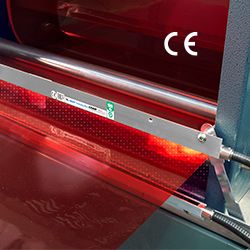IoT in Manufacturing: Seizing the Opportunities Amid Challenges
Now more than ever, manufacturers are integrating new technologies, such as IoT, cloud computing and analytics, and AI and machine learning into their production facilities and operations.
Why Cloud Computing is Essential for the Modern Manufacturing Industry?
Cloud computing's role in manufacturing has grown exponentially, from acquiring environmental data of machines to supply chain management through IoT applications and other advanced technologies.
Increased Cloud Adoption Will Drive Greater Business Value in 2023
The Cloud is driving business value by breaking down barriers, improving collaboration, and opening new business possibilities. I expect that the trend of cloud adoption will only increase in 2023, driving a revolution in smarter decision support by manufacturers.
Serving IoT Needs with Cassia Networks and Soracom
One factor that can complicate an IoT application is the crowding that may occur when many connected devices occupy the same area. To help corral all of these signals, many organizations opt to deploy Bluetooth gateways to help connect their IoT devices to the cloud.
The Value of Cloud in Manufacturing
Whether it be hybrid, multi, or on-premise, cloud technology has the ability to significantly increase productivity and scale processes throughout the entire organization.
The Dynamic Duo of the IoT - Combining Cloud and Edge Processing Gives the Best of Both Worlds
A challenge lies in that fact that every single smart device connected to the IoT generates huge amounts of data. All of this information must be processed and analyzed to successfully take advantage of the opportunities presented by Industry 4.0.
Cloud Deployments in Mission-critical Operations
As an industrial manufacturing engineer writing and speaking about the supply chain for many years, as well as being in the field helping companies for most all of my career, I wanted to pass on some thoughts and information for those of you that are considering this type of deployment option - especially if your mission-critical business depends upon a working cloud.
Sensor Data in the Cloud
UrsaLeo is an IoT platform company that aims to make it easy for companies to collect their sensor data in the cloud, store it, visualize it and integrate it with other IT systems. This is done in a highly secure and scalable fashion.
Powering GE's Digital Manufacturing Execution System (MES) - HVR, Real Time Data Integration
The consolidated view of the data dramatically simplifies comparisons across factories. With that it is much easier to identify inefficiencies (e.g. product not passing QA, volume of left over scrap) and differences in output.
Reining in on industrial automation: The benefits of cloud computing in the manufacturing industry
By embracing the cloud, manufacturers no longer simply collect data but instead, gain actionable insights from it. Whether its for quality improvement, sales forecasts or preventative maintenance, predictive analytics or machine learning can give manufacturers an edge over their competitors and possibly, a complete new service to sell.
Records 1 to 10 of 10
Featured Product

EXAIR's EasySwitch Wet-Dry Vac
EasySwitch Wet-Dry Vacuum simplifies the filter change process when switching from vacuuming a dry material to a liquid or vice versa. The EasySwitch is a powerful pneumatic vacuum that is ideal for any application - wet, dry, light and heavy. Exair184_5175
EXAIR is offering a special right now on all of their Industrial House Keeping Vacuums. Learn more at https://exair.co/184-ihppromo

.jpg)








